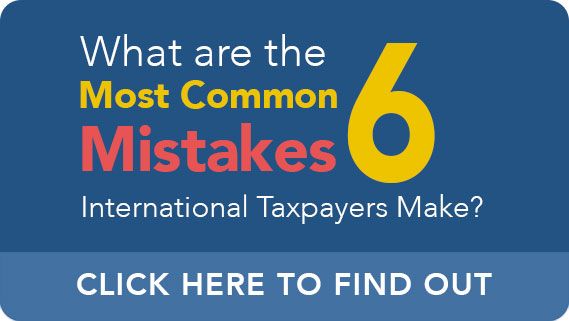US Tax Accountant for Owners or Beneficiaries of Foreign Trusts
Residents of the United States that own or are the beneficiaries of foreign trusts must be thorough when reporting their income to the Internal Revenue Service. The tax reporting rules for foreign trusts vary greatly from the rules imposed on domestic trusts. These rules may also change depending on the type of foreign trust a person owns and who is entitled to benefit from the trust. If you need assistance managing the reporting requirements of a foreign trust, you should consult with an experienced United States foreign trust accountant.
At US Tax Help, we are dedicated to providing you with thorough tax information to help you manage your tax liabilities. We recognize the intricate nature of U.S. tax law, and we are here to help guide you through ambiguous reporting requirements and rules. To schedule a confidential consultation to discuss your foreign trust, call US Tax Help at (541) 923-0903, or contact us online using our short submission form.
What is a Foreign Trust?
Determining whether a trust is domestic or foreign will also determine the tax reporting requirements for a U.S. owner or U.S. beneficiary. A U.S. owner or beneficiary is a U.S. resident that is a citizen, green card holder, or another party that remains in the U.S. for a specific period of time. There are two tests that are used to determine whether a trust is foreign or domestic: the court test and the control test.
Court Test
The court test examines whether any U.S. court at the federal, state, or local level can exercise primary supervision over a substantial portion of the administration of the trust. To further analyze this question, there are four factors that are considered:
- Whether the trust is registered with a U.S. court
- Whether a U.S. court can supervise the fiduciaries of a testamentary trust (created by a will)
- Whether the beneficiaries and fiduciaries of an inter vivos trust permit the trust to be supervised by a U.S. court
- Whether the rules of the trust specify that a U.S. court can exercise primary supervision over the trust despite the law of a foreign country governing the trust
Control Test
The control test analyzes whether one or multiple U.S. persons have the power to make practically all substantial decisions regarding the administration of the trust. The only exceptions to this authority can be the grantor or beneficiaries of the trust that make fiduciary decisions. A substantial decision is any decision that does not involve regular procedural issues. Examples of a substantial decision include:
- When and how to distribute income from the trust
- Determining the beneficiaries of a trust
- Deciding the amount of a trust distribution
- How to handle legal issues that may arise with the trust
- The decision to add, replace, or remove a trustee
- The ability to terminate the trust
- Making investment decisions for the benefit of the trust
To be considered a domestic trust, a trust must satisfy the requirements of the court test and the control test. All trusts that do not meet these tests will be considered foreign trusts and will have to follow the IRS reporting rules for foreign trusts. To learn more about filing taxes for a foreign trust, you should continue reading and speak with an experienced US tax accountant today.
Reporting Requirements for Foreign Trusts
It is important to meet the filing requirements for a foreign trust if you do not want to incur severe penalties from the IRS. These tax penalties may apply to a U.S. owner, U.S. beneficiary, or to the foreign trust directly. Any U.S. person that performs any of the following actions are subject to foreign trust tax rules:
- Establishing a foreign trust
- Shifting money or property to a foreign trust
- Receiving a distribution from a foreign trust
- You are the U.S. owner of a foreign trust
There are multiple IRS forms that can be used to report dealings with a foreign trust. For example, if you received a distribution from a foreign trust, you must file a Form 3520. If you are the U.S. owner of a foreign trust, you must file a Form 3520-A. It is important to understand your relationship with the trust to ensure you are fulfilling your reporting requirements.
Work with Our US Tax Accountant to Handle Your Foreign Trust Tax Liability
If you are concerned about the tax liabilities regarding your foreign trust, you should contact an experienced US tax accountant today. Ted Kleinman, the founder of US Tax Help, possesses over 30 years of accounting experience dealing with a variety of domestic and foreign tax issues, and he would be proud to use this knowledge to serve you. To schedule a confidential consultation, contact US Tax Help at (541) 923-0903, or contact us online.
